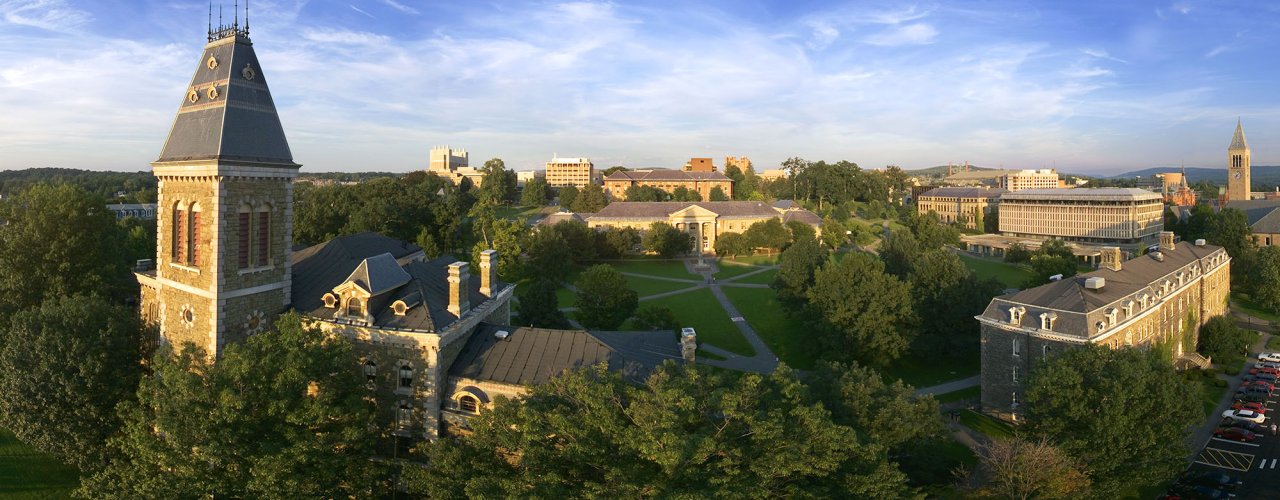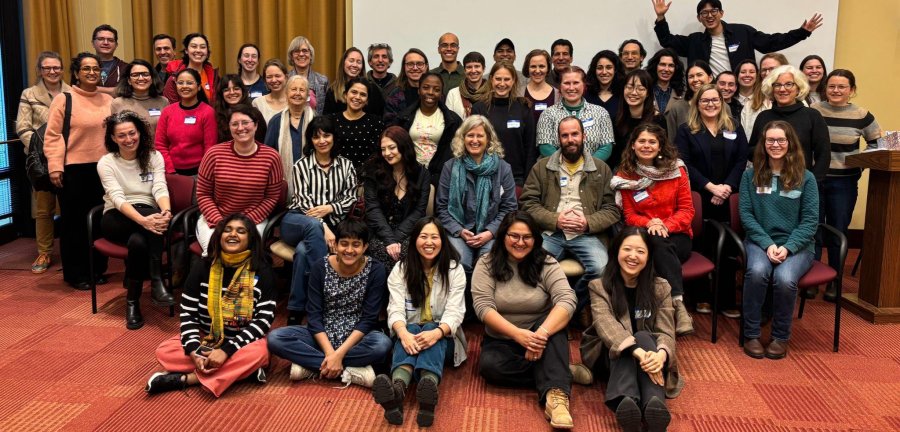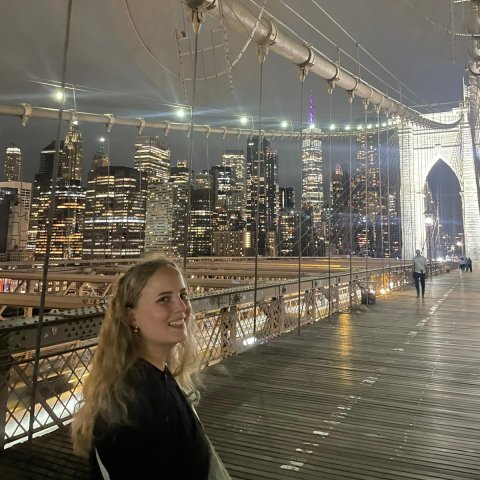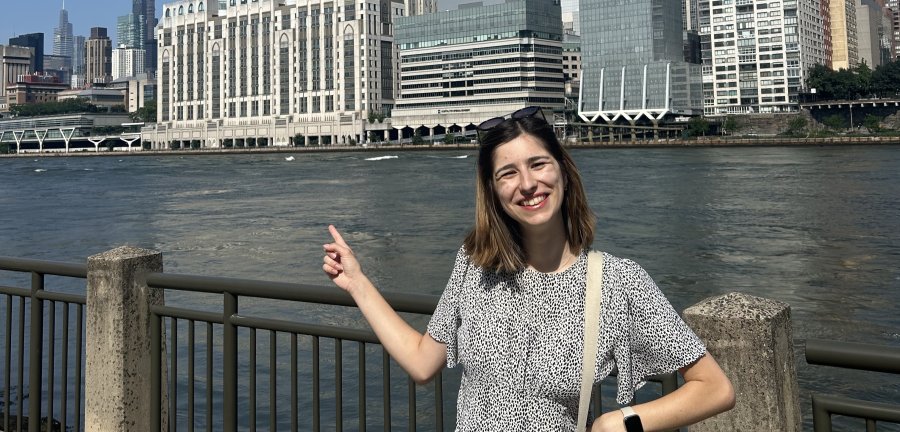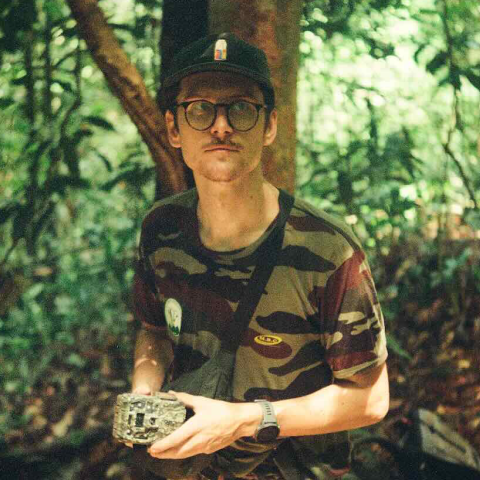Nine Imperial College London Global Fellows Spend a Summer at Cornell
Nine PhD students from Imperial College London were placed at Cornell this summer—seven on the Cornell Ithaca campus and two at Weill Cornell Medicine in New York City.
They partnered with Cornell professors and researchers as part of the Imperial Global Fellows Fund. Students were hosted by Cornell departments across a range of fields: chemistry, global development, medicine, applied economics, and more.
This year marks three years of receiving Imperial Global Fellows at Cornell.
Rebeca Biancardi
Rebeca Biancardi, PhD student at Imperial's Centre for Environmental Policy spent three months in Cornell's Department of Global Development. In collaboration with Rachel Bezner Kerr and Kurt Waldman, she developed a participatory research design and household survey to assess climate risks and the perceived benefits and limitations of mangroves in coastal Sierra Leone.
“Cornell really felt like an academic home, a place where I could step out of my comfort zone and try out new ideas. What I valued most was how open both faculty and peers were to sharing knowledge and constructively challenging assumptions. I’m leaving not only with sharper tools for my research, but also with lasting relationships and a broader sense of how my work can contribute to global conversations on climate resilience.”
Sarah Cechnicka
Sarah Cechnicka is a PhD candidate studying AI for healthcare. Her work focuses on applying deep learning methods to medical imaging, exploring how advanced generative models can be guided by structured information to support more accurate and reliable clinical decision-making.
"What made my time at Cornell unique was experiencing a very different lab environment. At home, I’m supervised by a senior professor where leadership and collaboration naturally take a broader, more structured form.
In New York, working with Dr. Johannes C. Paetzold in a young, small lab embedded within a larger group and so close to the hospital, I saw how a more agile, hands-on style of collaboration can spark creativity and connect research directly to clinical practice."
Ioana Esanu
Ioana Esanu is a PhD student in bioengineering at Imperial College London. She studies the biomechanical relationship between red blood cells and vascular function.
"I spent the summer in the Rafii Lab learning how to fabricate vascular microfluidic chips using their unique method so that I can then use them in my blood flow studies back at Imperial. After receiving training in their technique, I worked with different members and contributed to several research projects investigating endothelial dysfunction in disease and vascular response to stress.
The greatest takeaway from my summer placement at Cornell has been the opportunity to get out of my comfort zone. I got to meet many scientists with backgrounds and expertise completely different from my own, which prompted me to think about my research project from new angles. I am really excited about all the new avenues this experience has opened for me."
Tijmen de Lorm
At Cornell, PhD candidate Tijmen de Lorm worked on developing acoustic detectors for several species of Bornean primates, using exciting new methods based on artificial intelligence. Acoustic detectors help researchers find monkeys like orangutans and gibbons.
“I instantly fell in love with Ithaca and its surroundings. To work against the backdrop of the beautiful gorges cutting through the town, at a world-class institution, was a true honor. With the support of the Yang Center for Conservation Bioacoustics, I learned how to apply and develop cutting-edge techniques.”

